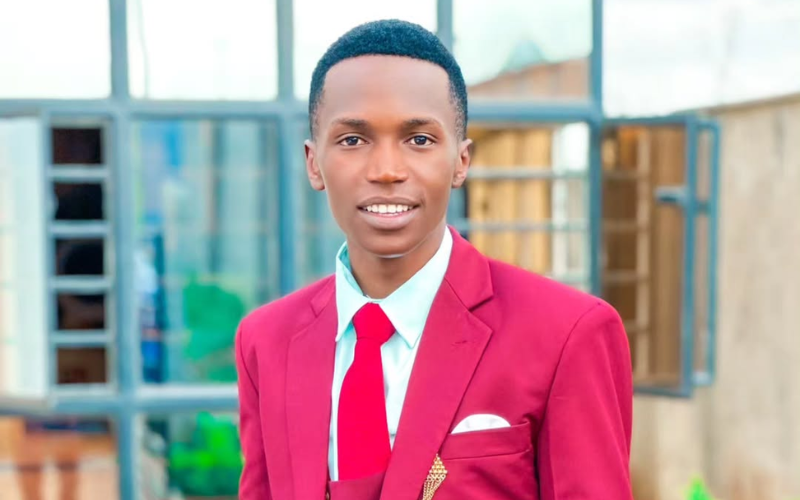Popular social media personality Raymond Omosa, popularly referred to as Kenyan Prince, has raised eyebrows after ‘mistakenly’ showing a handgun in one of his TikTok livestreams.
The content creator, well-known for showcasing a flamboyant lifestyle, was streaming from inside a car, flaunting its modern interior features, while seemingly parked by the roadside.
At one point during the stream, Omosa turned his camera to the centre console storage box, popped it open and momentarily captured a gun before quickly turning it away upon realising what had just happened.
Moments later, he was heard cursing, aware that viewers had spotted the weapon.
@smusgossiphub
Content creator Kenyan Prince has been ordered to report to any police station and present his firearm licence for verification after he was seen flaunting a pistol during a live session. In a direct message, Nairobi officer Saigon the Punisher (James) said: “Kenyan Prince, I want you to visit any police station with your licence and I’m serious about it. We’re not jokers and we’re not tolerating this — io bunduki kama huna licence. And who issued that license to this content creator? I’m Saigon — follow my directive.” Authorities say the visit is to confirm whether the firearm is legally licensed.
♬ original sound – Smus Gossip Hub
Following the incident, Omosa went online to defend himself, apologised to the government and claimed that he is a licensed firearm holder.
“To the government of Kenya, that was a mistake; it was not intentional. It is licensed. I just made a mistake,” he said.
However, his clarification did little to stop the growing wave of online scrutiny.
Netizens flooded social media with mixed reactions.
While some defended him, others saw the incident as reckless or even staged.
One user on X, @MillionaireLangat, warned: “Life should be secret… be careful bro.”
Another, @Ernesto001, cynically remarked, “Nothing will happen… money is everything in Kenya.”
But one particular comment stood out for its chilling tone.
A user identified as @SaigonPunisherJames wrote: “Kenyan Prince, I want you to visit any police station with your license. I am serious… hio bunduki kama hauna licence…”
The name “Saigon” caught the attention of many.
It is allegedly linked to a group of notorious online vigilantes known for targeting suspected criminals in Nairobi’s informal settlements.
Members of the group, operating under aliases such as Hessy wa Dandora, Hessy wa Kayole, and Silverstone, are believed to run social media accounts that issue chilling warnings to suspected offenders; and, in some cases, take extrajudicial action when those warnings are ignored.
The renewed scrutiny on Omosa has once again raised questions about his true source of living, amid immense and rapidly growing attention around ‘forex trading’ in Kenya.
What does the law say?
Private ownership of firearms in Kenya is treated as a privilege, not a constitutional right, and is governed by the Firearms Act (Cap. 114), which is enforced by the Firearms Licensing Board (FLB).
The law dictates a stringent licensing process for civilians seeking to possess, manufacture, or deal in firearms.
The application requires a demonstration of a “good reason” for needing the weapon, which is subject to the discretion of the licensing authorities, unlike in jurisdictions where self-defence is an automatic right.
This process involves thorough vetting, including a certificate of good conduct from the DCI, a psychiatric report from a government hospital, and certified bank statements, among other documents.
The law is restrictive, outlining specific criteria for who is allowed to possess a firearm.
Individuals are required to be citizens or residents, have reached the prescribed age (though not explicitly stated in all snippets, typically adults), can prove they have a legitimate reason (like protection of life or property that exceeds the ordinary), and have been certified as suitable and proficient by the FLB.
Ordinarily, the FLB has the power to deny, cancel, or vary any license, and violations of the Act carry severe penalties, including imprisonment.
